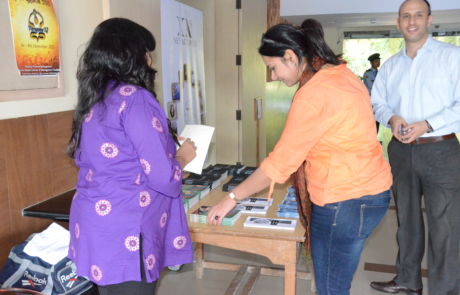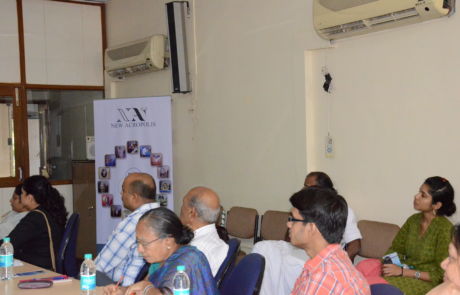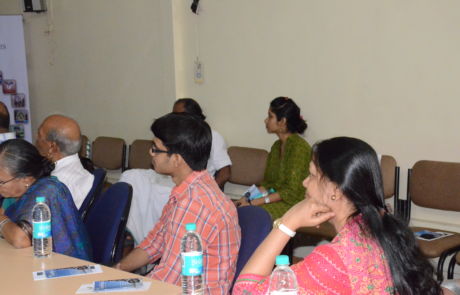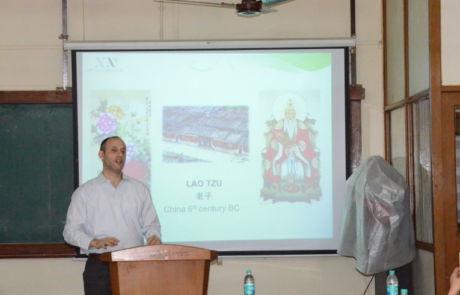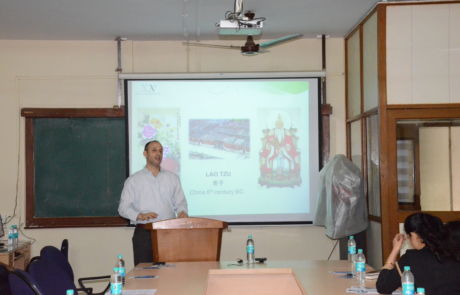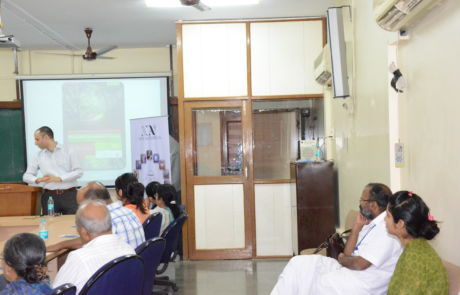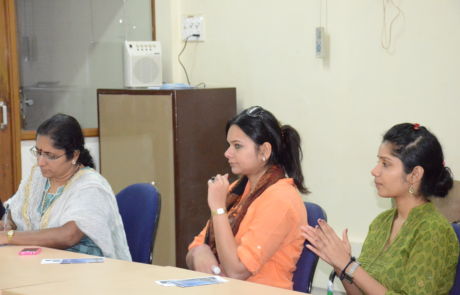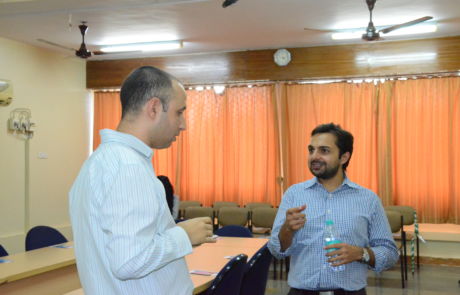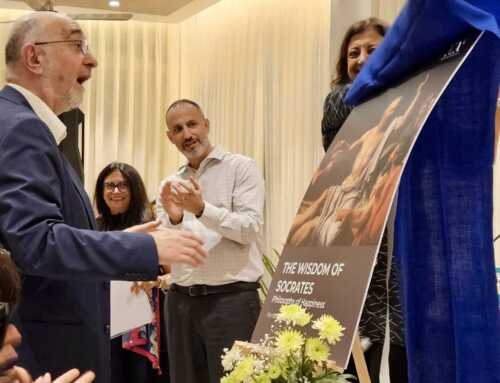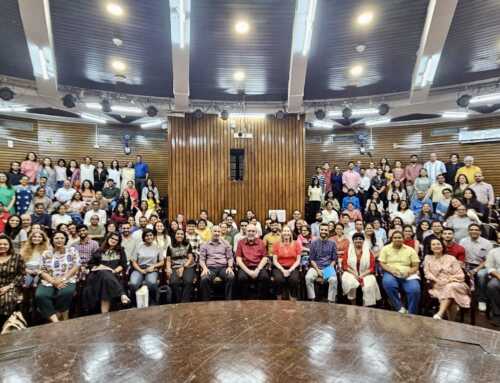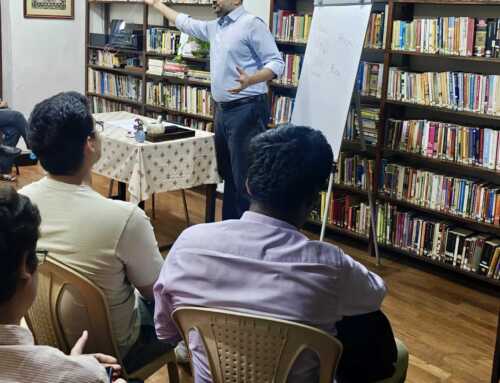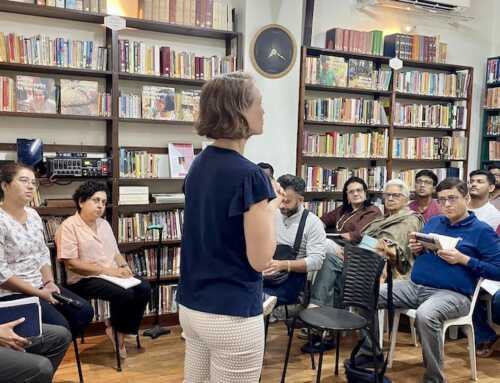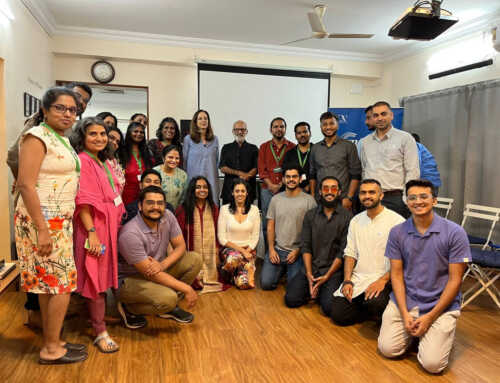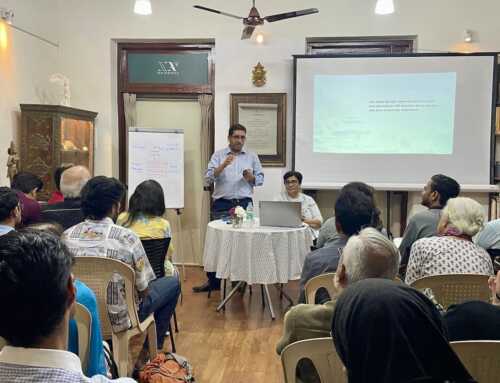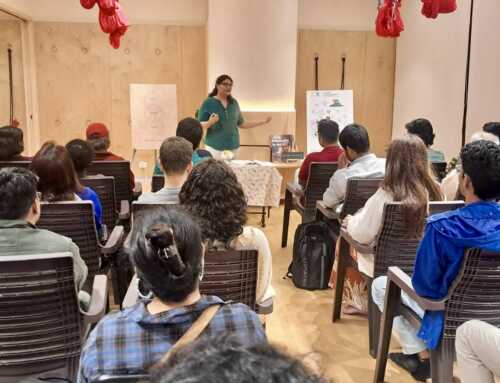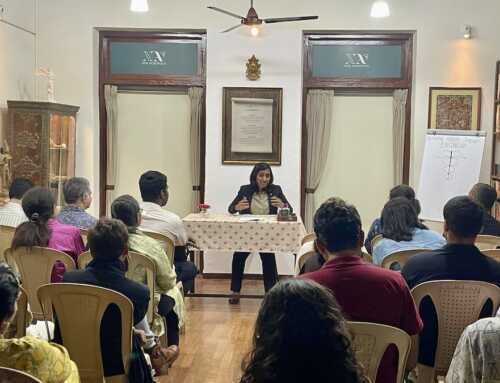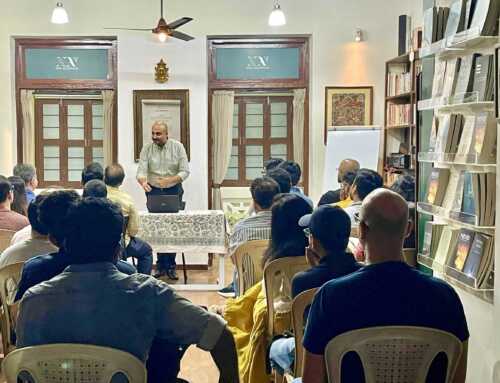 On the 23rd of November, New Acropolis joined hands with UNESCO New Delhi and Somaiya Vidyavihar to celebrate World Philosophy Day 2012, at the SIMSR Building of Somaiya Vidyavihar University. The event entitled, “Philosophy: The Greatest of all Journeys” was presented by Yaron Barzilay, National Director of New Acropolis India (North), and motivated guests to consider Philosophy as an inherent approach with which to live Life – through an exploration of inspiring mythology and examples of Wise Men from various ancient civilizations.
On the 23rd of November, New Acropolis joined hands with UNESCO New Delhi and Somaiya Vidyavihar to celebrate World Philosophy Day 2012, at the SIMSR Building of Somaiya Vidyavihar University. The event entitled, “Philosophy: The Greatest of all Journeys” was presented by Yaron Barzilay, National Director of New Acropolis India (North), and motivated guests to consider Philosophy as an inherent approach with which to live Life – through an exploration of inspiring mythology and examples of Wise Men from various ancient civilizations.
The engaged audience, comprising of Faculty and Students of the University, was introduced to Plato’s Allegory of the Cave, Lao Tse’s sensitivity to Laws of Nature, and Ancient Egypt’s symbolic representation of the Journey of the Soul into the Afterlife. This event marks the third annual celebration of World Philosophy Day by New Acropolis India (North).
Click Here for event coverage by UNESCO
The event was conducted with the support of UNESCO New Delhi and Somaiya Vidyavihar
UNESCO World Philosophy Day
Since its formulation at the end of World War II, UNESCO has used the medium of philosophy to implement the ideals that inspired its Constitution. The organization, through moral and intellectual means, would help build a world, free from hatred, fanaticism and obscurantism. During the new Organization’s first conference (London, 1945), Leon Blum, its Vice-President, pointed out that this war had essentially been ‘ideological’ and had shown how education, culture and science could be used against mankind’s common interests. During the war, philosophical concepts had been hijacked and appropriated for propaganda purposes by the totalitarian states; and, even in the democratic nations, the principles of human dignity had been pushed into the background, supplanted by the need for efficiency.
The first clause of the organization’s constitution reads “since wars begin in the minds of men, it is in the minds of men that the defenses of peace must be constructed.” To achieve this, it was necessary to develop contacts and exchanges so that mutual knowledge and understanding can progress and open the way for the moral and intellectual solidarity of the human race, which is the only way to ensure lasting and real peace.As a result, UNESCO tried to spread, implement, and even popularize an international philosophical culture, which was meant to reinforce respect for the human person, love of peace, hatred of narrow-minded nationalism and of the reign of strength, solidarity and commitment to an ideal of culture.
The founders of UNESCO did not limit philosophy to the speculative field of pure metaphysics, normative and theoretical ethics and individual psychology, but saw it as reaching out to the borders not only of human knowledge but also of all human activity.” UNESCO World Philosophy Day is one of many initiatives that celebrate this spirit of universal fraternity.

